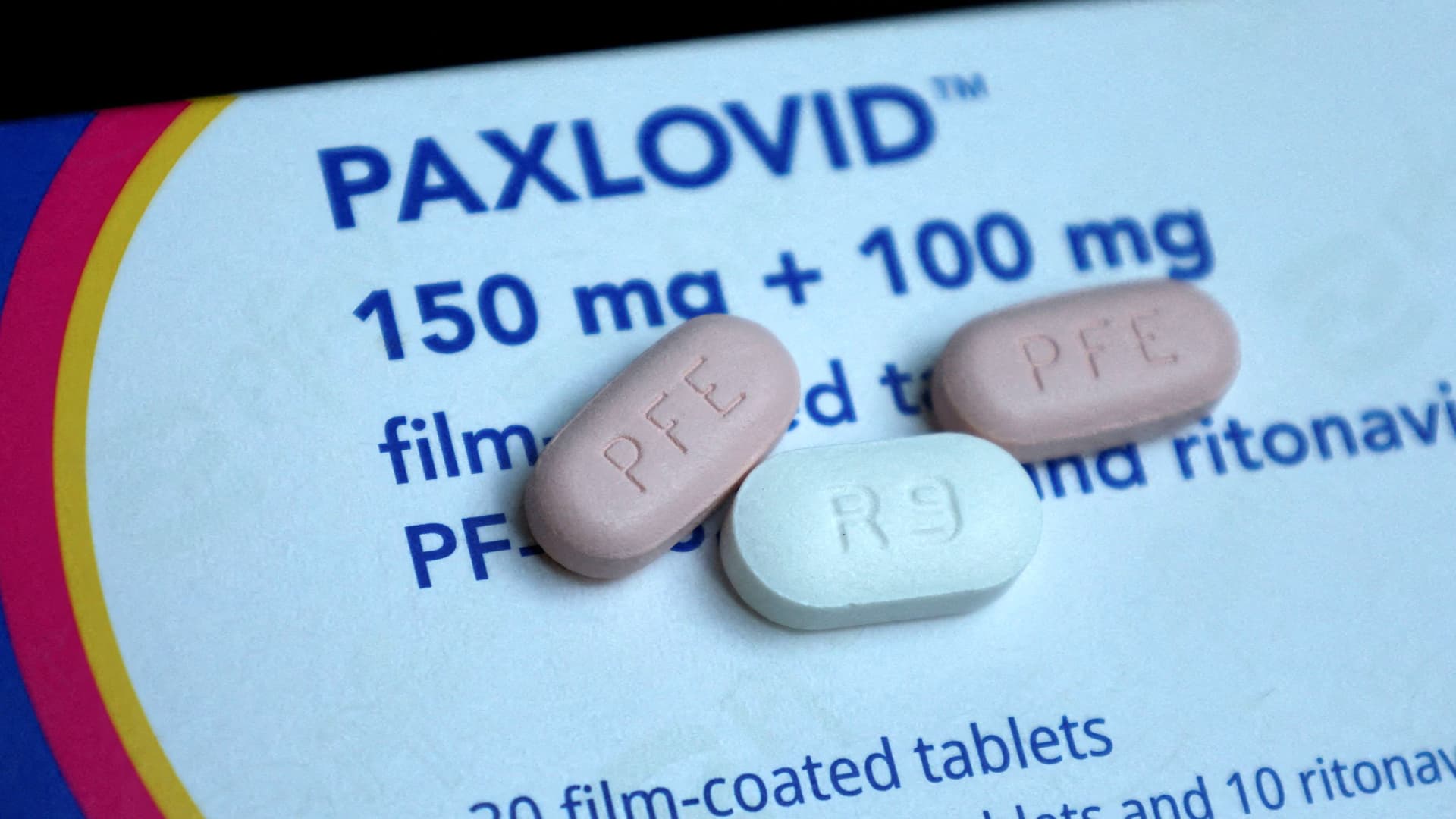
Paxlovid, Pfizer’s anti-viral medication to treat the coronavirus disease (COVID-19), is displayed in this picture illustration taken October 7, 2022.
Wolfgang Rattay | Reuters
The National Institutes of Health said Monday it launched mid-stage clinical trials to test at least four treatments, including Pfizer‘s antiviral Covid-19 pill Paxlovid, as potential therapies for long Covid.
There is no proven treatment for the condition, which refers to symptoms that continue or develop in the weeks or months following an initial Covid infection. It affects an estimated 23 million Americans.
related investing news


Health care providers typically try to treat the often debilitating symptoms associated with long Covid, such as chronic pain, memory loss and intense fatigue. But the lack of a specific long Covid treatment pushes some patients to seek unproven – and potentially dangerous – remedies for the condition.
“We know that when patients are suffering, we can never move fast enough,” said acting NIH director Lawrence Tabak. “NIH is committed to a highly coordinated and scientifically rigorous approach to find treatments that will provide relief for the millions of people living with long COVID.”
NIH will test the safety and effectiveness of the treatments – which include both drugs and medical devices – in groups of 100 to 300 patients with long Covid symptoms.
The first part of the phase two trial will test a longer dosing regimen of Paxlovid to see if it improves long Covid symptoms.
Patients typically take Paxlovid within five days of developing Covid symptoms to reduce their risk of hospitalization or death, according to the Food and Drug Administration’s approval of the drug in May. To complete a full course of Paxlovid, patients must take three pills twice a day for five days.
NIH said another part of the study will also test for brain fog and memory-related symptoms.
The agency will test medical treatments like a web-based brain training program called BrainHQ and a device that uses a small electric current to stimulate brain activity.
NIH expects to launch additional clinical trials to test at least seven more treatments “in the coming months.”







